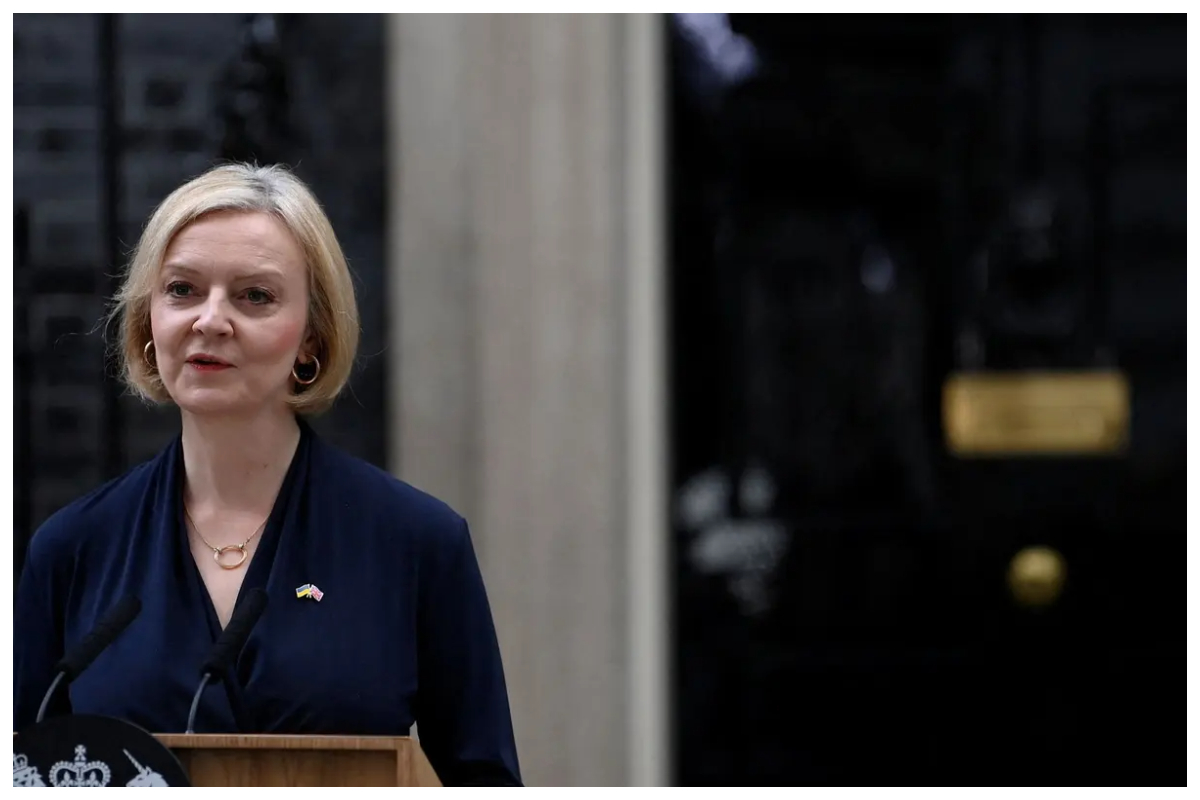- After 45 turbulent days as prime minister, Liz Truss resigned.
- After Tory MPs forced her resignation, Ms. Truss indicated her successor would be elected next week.
- After a succession of economic plan U-turns weakened Ms. Truss, Tory MPs revolted.
After 45 turbulent days as prime minister, Liz Truss resigned, launching the second Tory leadership contest in four months.
After Tory MPs forced her resignation, Ms. Truss indicated her successor would be elected next week.
Chancellor Jeremy Hunt declined to run, but other top Tories may.
After a succession of economic plan U-turns weakened Ms. Truss, Tory MPs revolted.
Ms. Truss spoke briefly outside Downing Street, saying the Conservative Party had elected her to lower taxes and increase economic growth.
But given the situation, Ms. Truss said: “I recognize that I cannot deliver the mandate on which I was elected by the Conservative Party.”
Following Ms. Truss’s resignation address, Labor leader Sir Keir Starmer and other opposition parties demanded a quick general election.
Ms. Truss said she would stay until a successor becomes party leader and prime minister by King Charles III.
Last week’s chancellor, Mr. Hunt, has stated he won’t run for prime minister, but none of the contenders who ran against Ms. Truss have said they will.
Sir Graham Brady, head of the 1922 Conservative backbench committee, suggested a leadership election could be completed by Friday next week.
He said he anticipated Conservative members to vote on Ms. Truss’s successor, but would elaborate later.
And he sidestepped questions about whether one or two candidates would be likely to run, telling reporters: “The party rules say there will be two candidates unless there is only one candidate.”
In her speech, Ms Truss said she entered “office at a time of great economic and international instability”, as war rages in Ukraine and living costs skyrocket.
The prime minister claimed her government provided energy bill relief and reversed a hike in National Insurance, a tax on workers and employers.
After political and economic turmoil prompted her government to abandon tax cuts that sank global markets, Ms. Truss resigned.
To calm markets, the prime minister fired close political friend Kwasi Kwarteng as chancellor and promoted Mr. Hunt.
At Prime Minister’s Questions on Wednesday, Ms Truss insisted she was a “fighter, not a quitter” after Labor’s leader asked her why she had not resigned.
[embedpost slug=”uks-liz-truss-is-in-danger-as-the-interior-minister-resigns-and-lawmakers-argue/”]

















